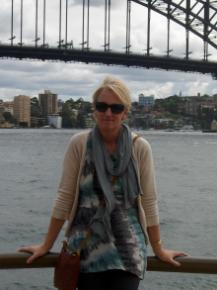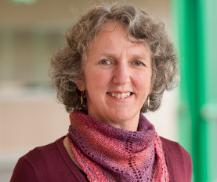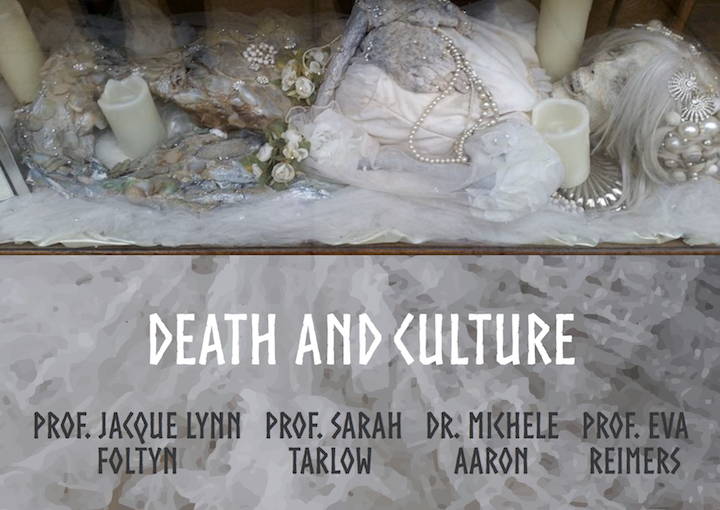Now that the dust’s kind of settling over Brexit (lets
ignore the court decision over Article 50 for a second, and don’t even mention
the US election), I thought that it would be worth taking a look at the reasons
for one of the closest and most devastating results of my lifetime. As I write
this, there are any number of motivations behind the referendum result that are
interesting, but the one that fascinates and concerns me most is the rise in and
deployment of Nationalist rhetoric throughout the duration of the ‘Leave’
campaign, and the subsequent continuation of these ideas in recent months.
 |
Credit: Chris (Simpsons Artist). So wrong but so right.
|
As I
said, the decision to leave the EU has been influenced by a kaleidoscope of
reasons, but concerns about immigration, national identity, and the
accompanying deep-seated cultural divide have provided the most compelling
illustration of the chasm at the heart of British politics. The Conservative
Party in particular seemed to suffer the most at the hands of the rhetoric of
‘Divided Britain’ due to the very public conflicts of interests amongst its
senior members, and as a consequence were blamed in part for the result on June
23rd.
This theme of division is one that I’ll carry forward in
this post because it provides an interesting, if depressing, framing of Brexit,
and allows me to explore a little bit of what it means to be ‘British’ in a
post-European mind-set. Key to this exploration are notions of memory and
national identity, due to the ways in which the media juxtaposed nostalgic
‘Britishness’ with the risk of cosmopolitan, multicultural encroachment on
‘British’ cultural space by continued association with the EU.
The nature of
political rhetoric in the United Kingdom illustrates the instrumental role that
this compromised nostalgia plays in the creation of the ‘national story’.
Preston suggests that in the context of the fragmentary contemporary world,
such as the one that faces us now, the sense of a shared ‘national past’ allows
people to create meaning in the face of new cultural uncertainties (Preston,
2004).
This manifests most obviously in cultural institutions such as the Royal
Family and the Armed Forces. Indeed, the very suggestion that not wearing a
poppy in Remembrance is in any way ‘unBritish’ demonstrates the power of the
national cultural norms that we as a country have adopted over the decades
since the Armistice.
However, I digress. That being said, it is these cultural
concessions that serve as a kind of ideological brace against the
contradictions of diverse, globalized cultural threats, and that serve as
points of reference for outrage when ‘others’ transgress against the perceived
concrete ideals of our nation.
 |
Credit to Mark Thomas/Rex/Shutterstock/ The Guardian.
Please don’t sue me.
|
The shadowy figure of immigration was one that proved to be
a particularly effective point of reference for equally shadowy political
groups such as UKIP (who recently exported Nigel Farage to the USA, thus
spreading the tide of the apocalypse with Trump’s victory, but enough about
that…).
Their campaign targeted the perceived ‘Breaking Point’ of public
services and suggested that the EU would allow further immigration to an
essential point of no return, creating a handy spectral figure for sovereign,
self-governing Britain to exorcise. The urge to ‘take back control’, then,
played upon national fears about Britain’s lack of self-governance under
European rule and invoked ‘old character types’ (Preston, 2004), sparking the
conflict between glorious industrial Britain and meddling bureaucratic Europe
(Maggie who?).
In decimated
agricultural and industrial regions such as the North East, concerns about
marginalized British labourers and overwhelming, EU mediated regulations were
cited as powerful incentives to vote Leave. This was reflected throughout the
region, with eleven areas in the North East designation turning out with
substantial majorities in favour of leaving the EU (BBC, 2016).
The vote
allowed sentiments of marginalization and frustration to reverberate throughout
the political landscape, and Jean Seaton would argue that it is precisely
political situations such as these that allow for exposure of the divide
between the needs of the people, and the official institutions that fail to
represent them.
Seaton’s analysis of Brexit points to the ways in which
communities no longer feel that their experiences are reflected back to them by
the media or by mainstream political interests, and thus are most vulnerable to
a sense of loss in terms of community, cultural and national identity (Seaton,
2016). Therefore, it makes sense that
the call to regain control would resonate with these groups, who sought to
reinstall a sense of power over their own lives and communities.
It is these notions of self and community that are useful
when understanding how collective memory and identity were galvanised
throughout much of the referendum campaign. The media is especially important
to the creation and endorsement of these models of nationalised identity;
culture, after all, is “unthinkable without media” (Erll, 2011), and the
particular framing of the British cultural narrative is a potent example of the
power of the press in times of uncertainty.
The historic primacy of the white,
British majority position has very reliably served to cultivate a nostalgia for
heroic Britain through focus on national symbols such as the Royal Family, the
Armed Forces and the symbolic Poppy. This idealisation of the victorious,
powerful ‘Anglo-British tale’ (Preston, 2004) brings with it the connotations
of the glory of Empire, in which Britain did as it pleased, and places those
who are not British in an antagonistic state of ‘otherness’. This binary is
further encouraged by the media; the white British majority are placed in
opposition with the multi-ethnic narratives of those who have settled in the
United Kingdom.
Black (2016) addresses the way in which news media tends to
reinforce British cultural Nationalism, and envisions the experiences of those
who are not British as additional to the dominant national history, rather than
as complexly interwoven with the legacies of British power. This separatism
manifests itself in the most banal ways, such as the perceived righteous
outrage at Nadia’s Bake Off victory in 2015 (apparently being from a British
Bangladeshi family and baking cakes for the Queen isn’t British enough for the
Right Wing), but all the same illustrates that the news media has encouraged a
very particular vision of Britishness.
The discursive framing of the instabilities
of multi-ethnic Britain serves as an ideological challenge to multicultural
Britain by provoking fears about the “creeping cultural fragmentation” that
this would encourage. For Right Wing media outlets such as The Daily Mail, who
advocate for more rigorous immigration policies, multi-ethnic integration
threatens the ‘British cultural fabric’, and thus must be discouraged in order
to protect the identity and resources of the British people.
What does all of this have to do with the EU?
Since I veered
off, it’s best to head back in that general direction. Throughout the
referendum, the insistent repetition of ‘borders’, the impact of migrants , and
the provocation of fears about Turkey’s accession to the EU were key resources
in the Leave campaign’s rhetoric of division and defence.
Turkey’s geopolitical
position in the East of Europe resurrects the spectre of terror that has hung
over Western culture for the past fifteen years, with fears about undocumented
waves of potential terrorists a particularly meaty topic for many news outlets.
These anxieties have been mobilised by outlets such as The Express, who warn of
the dangers inherent in “the flood of migration that would make the existing stream look
like a trickle”.
Concerns about the application of the free movement policy to
Turkey, should its entrance into the European bloc be successful, are
increasingly framed in terms of what Clark calls the ‘Islamic question’ in his
editorial, and his focus on Turkey’s ‘slide back into Sharia Law’ prompts
questions as to whether the Right Wing considers Turkey to be too ‘Islamic’ to
join the Western political conglomerate of the European Union (Clark, 2016).
This, of course, highlights the difficult historical relationship between the
cultural West and its homogenous portrayals of Islam; the tendency to position
the latter as the enemy of Western democracy has served to legitimate the
othering of Muslim populations in the UK in the name of defending British
cultural values.
This
conflict of interests, in which multiculturalism is seen to have failed, is
expressed in frustrations about the encroachment of political correctness on
the expression of British culture; stories abound in the media in which British
people are offended by the requirement to remove flags, clothing and other
paraphernalia that express or could be seen to indicate Nationalist sentiments.
It is this effacement of national pride that serves as a cornerstone for the
re-ignition of Nationalist populism, and it is possible to draw parallels
between the outrages of overzealous political correctness in the United
Kingdom, and the surge in Nationalism in countries such as the United States of
America and Germany, where the dominant culture is also seen to be threatened
by immigration and multiculturalism.
Therefore, although concerns about the
Muslim population are not a direct cause of the British decision to leave the
European Union, the resultant reinforcement of’ Britishness’ against cultural
threat is metonymic of the very concerns that have been mapped onto the influx
of Polish, Croatian and other Eastern European migrants who are also seen to
threaten British identity.
The common figure of the ‘Eastern European’
criminal, it could be argued, has become the folk devil of the Brexit age, due
to the media’s evocation of this provocative image, and the subsequent need to
defend ourselves from this threat.
Although national identity does not serve as cultural
monolith, it is worth considering its power as a discursive resource when
notions of individual consciousness are threatened. The closeness of the referendum result and the
contradictions within the demographic of each voting collective demonstrate
that the decision to leave the EU was neither light-hearted nor simple.
However
it may be argued that in the face of concerns about what it means to be
British, alongside increasing anxieties about racism, Nationalism and conflict,
the narrative of collective memory and identity provides a potent framing of
the referendum result.
BBC News. “EU
Referendum: Almost all North East areas vote for Brexit”, BBC News, June 24th, 2016. http://www.bbc.co.uk/news/uk-politics-eu-referendum-36598599
Black, Jack, “Celebrating British multiculturalism,
lamenting England’s/ Britain’s past”, Nations
and Nationalism, no. 22, issue 4 (2016): 786-802.
Clark, Ross, “Migrant Crisis may aid Turkish bid for EU
membership, says Ross Clark”, The
Express, March 8th, 2016. http://www.express.co.uk/comment/expresscomment/650620/Migrant-crisis-may-help-Turkey-s-bid-for-EU-membership
Erll, Astrid, Memory in
Culture. Translated from the German by Sara Young. Basingstoke, Palgrave
Macmillan, 2011.
Preston, P.W, Relocating
England: Englishness in the New Europe. Manchester, Manchester University
Press, 2004.
Seaton, Jean. “Brexit and the Media”, The Political Quarterly, no.87, issue 3 (2016): 333-337.
Stewart, Heather and Rowena Mason, “Nigel Farage’s
anti-migrant poster reported to police”, The
Guardian, June 12th 2016. https://www.theguardian.com/politics/2016/jun/16/nigel-farage-defends-ukip-breaking-point-poster-queue-of-migrants
The Electoral Commission. “EU Referendum results. The Electoral Commission.
http://www.electoralcommission.org.uk/find-information-by-subject/elections-and-referendums/past-elections-and-referendums/eu-referendum/electorate-and-count-information


















